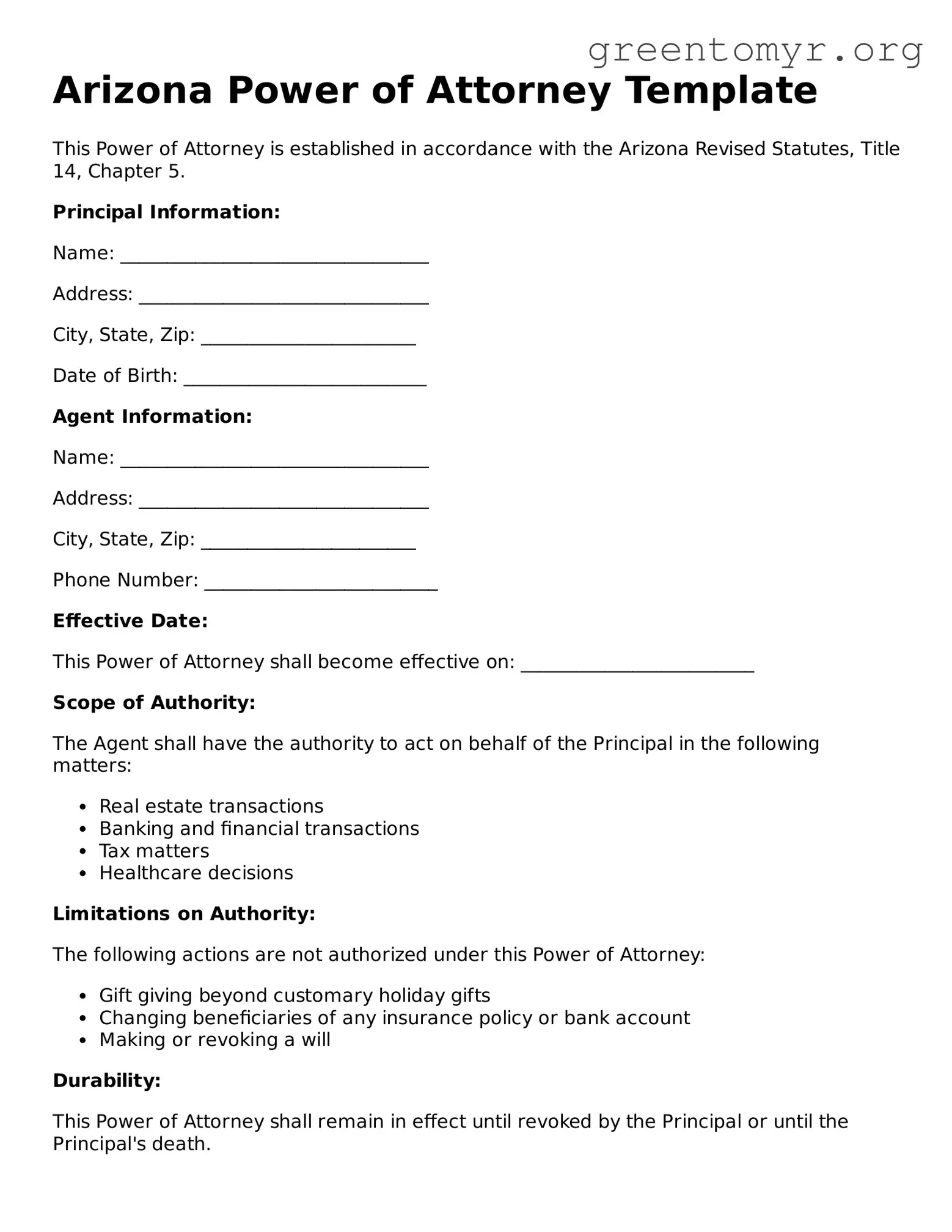Arizona Power of Attorney Template
This Power of Attorney is established in accordance with the Arizona Revised Statutes, Title 14, Chapter 5.
Principal Information:
Name: _________________________________
Address: _______________________________
City, State, Zip: _______________________
Date of Birth: __________________________
Agent Information:
Name: _________________________________
Address: _______________________________
City, State, Zip: _______________________
Phone Number: _________________________
Effective Date:
This Power of Attorney shall become effective on: _________________________
Scope of Authority:
The Agent shall have the authority to act on behalf of the Principal in the following matters:
- Real estate transactions
- Banking and financial transactions
- Tax matters
- Healthcare decisions
Limitations on Authority:
The following actions are not authorized under this Power of Attorney:
- Gift giving beyond customary holiday gifts
- Changing beneficiaries of any insurance policy or bank account
- Making or revoking a will
Durability:
This Power of Attorney shall remain in effect until revoked by the Principal or until the Principal's death.
Signature of Principal:
______________________________ Date: _______________
Witnesses:
As witnesses to the signing of this document, we hereby certify that the Principal signed this Power of Attorney in our presence.
- Witness Name: _____________________ Signature: ______________________ Date: ______________
- Witness Name: _____________________ Signature: ______________________ Date: ______________
Notary Acknowledgment:
Subscribed and sworn before me on this ____ day of __________, 20__.
Notary Public: ________________________
My Commission Expires: ________________
